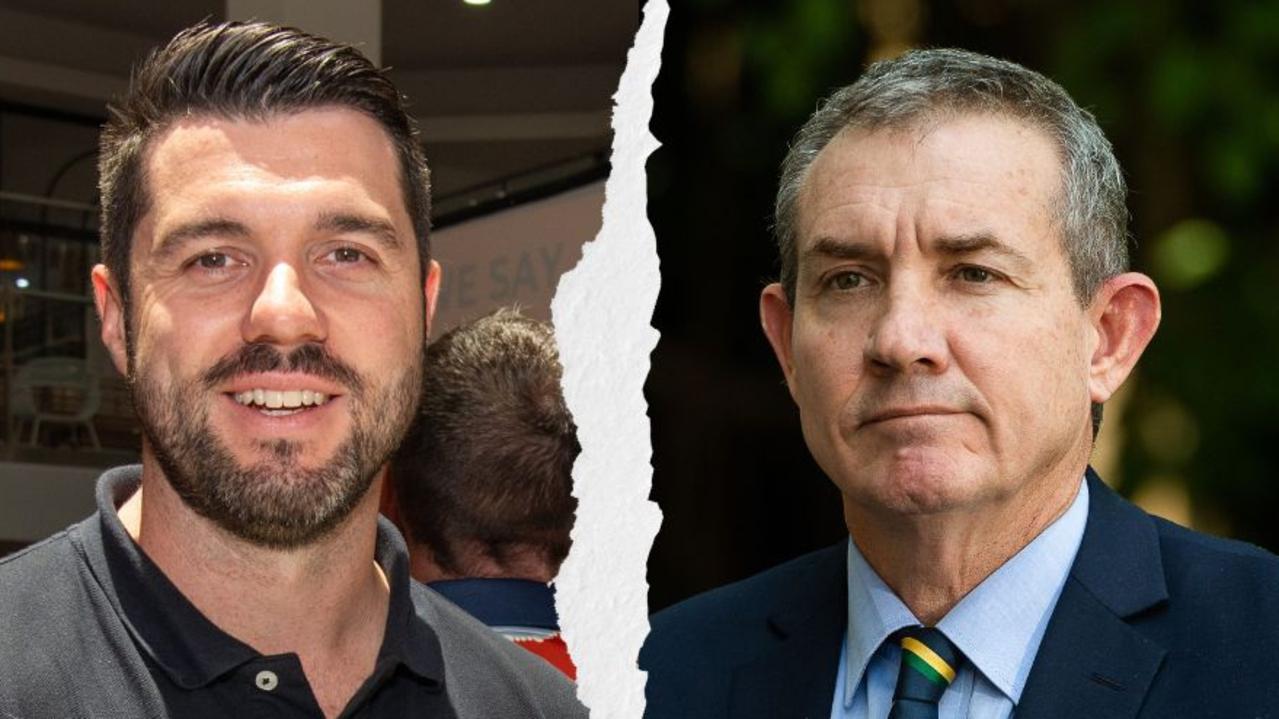NT election 2024: Rehab services criticise CLP’s mandatory alcohol treatment pitch
A Territory rehab leader has condemned the revival of a zombie alcohol policy, seven years after the $18m a year mandatory alcohol treatment program was found to have no long-term benefits. FIND OUT HOW THE ALP, CLP RESPONDED.

News
Don't miss out on the headlines from News. Followed categories will be added to My News.
A Territory rehabilitation service has criticised the revival of the zombie policy of mandatory alcohol treatment, seven years after the $18m per year program was found to have no apparent long-term health impacts.
Drug and Alcohol Services Australia chief executive Eloise Page has raised concerns about the Country Liberal Party’s proposal to restart mandatory alcohol treatment, 200 days out from the August NT election.
Ms Page said the proposal came seven years after the exact same policy was scrapped, following a scathing PWC and Menzies School of Health Research evaluation.
The 2017 report, which was commissioned by the former CLP government, found that while there were some short-term wellbeing benefits — such as providing dental or other health care — the long-term benefits were minimal.

It revealed that Territorians who took part in the mandatory treatment had the same number of emergency department presentations and hospital admissions as those with no treatment at all.
“Most were reapprehended by NT Police multiple times, entering custody from homelessness and ending up homeless again,” it found.
While medical practitioners could refer clients to the AMT, the review found all 1745 assessment points were via police protective custody — and almost all were Aboriginal.
The operation of the Alcohol Mandatory Treatment scheme were also the subject of multiple coronial inquests, including two deaths in a sobering up shelter and a compulsory treatment centre.
Ms Page said the mandatory scheme failed to address the root causes of addiction, and threatened to disrupt other client’s rehabilitative process.
“When somebody has no control, and no buy in, no self investment in their own treatment journey, they’re unlikely to engage in a way that’s going to be meaningful,” she said.
“It can even have the opposite effect.”
Ms Page emphasised that the Territory’s rehabilitation sector simply did not have the staff for a mandatory addiction program, saying even now there was no accommodation for the rehab workers.
However, she said the CLP’s additional focus on prison-based rehabilitation programs could have a positive impact — if it was therapeutically run, properly funded and staffed.
Ms Page said the Labor alcohol agenda appeared to be more focused on “staying the course”, but said there was clearly a growing recognition that addiction as a “a health issue rather than a justice issue”.
However she remained critical of Labor’s Banned Drinkers Register — a different largely mandatory scheme — saying it did not have a rehabilitative impact on people suffering from addiction, who can be forced into court for breaches.
“Most people that we’ve seen — especially with sobering up shelters — would not even would not know that they were on the BDR,” she said.
Ms Page highlighted that whoever took over government in August faced an alarming ticking clock, with more than 400 remote communities yet to have their alcohol management plans approved.
After a chaotic period when intervention-era booze bans expired in the Territory in 2022, the ALP introduced a temporary opt-out alcohol protection scheme over remote communities.
However more than a year after bans were reimposed, Ms Page said she was not aware of any community whose AMP was approved.
“The concept of communities and individual freedom, having choice and control, making decisions and being empowered, I think that’s a positive,” she said.
“But they’re not very useful if they’re not being implemented.”
More Coverage
Originally published as NT election 2024: Rehab services criticise CLP’s mandatory alcohol treatment pitch









